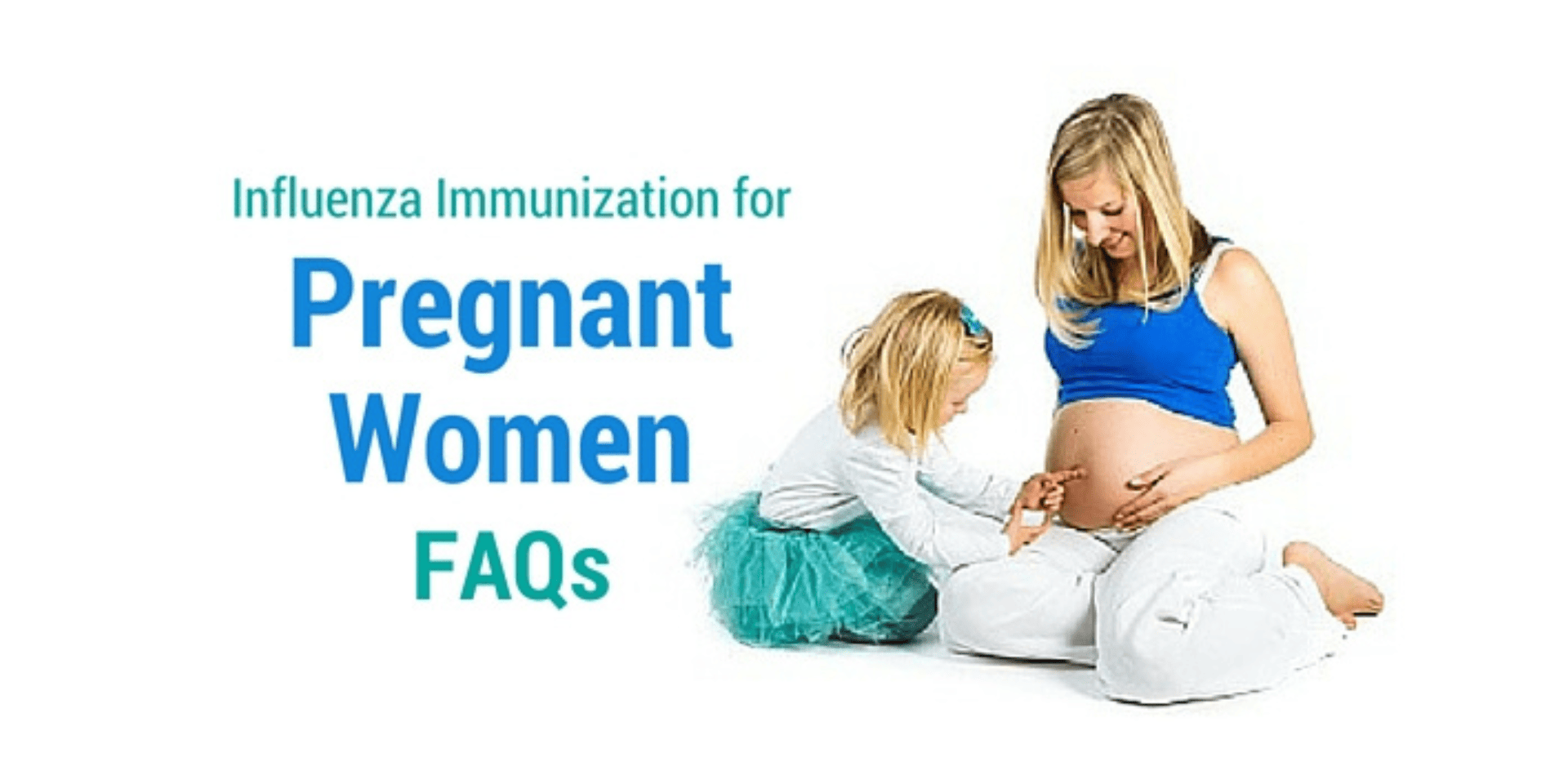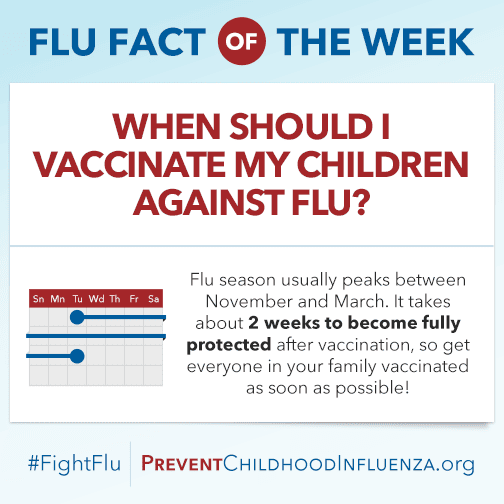
Influenza, more commonly referred to as flu, is a highly contagious viral infection of the nose, throat, and lungs that occurs most often in the late fall, winter, and early spring. It is a serious infection that affects between 5-20% of the US population annually. Children younger than 6 months of age have the highest risk of being hospitalized from flu and pregnant women are also at increased risk of complications from flu. Flu vaccination is the best way to protect pregnant women and their babies against flu.
The Centers for Disease Control and Prevention (CDC) recommends that everyone six months and older get an annual flu vaccine. Since pregnant women can provide protection to newborns through maternal immunization, CDC also recommends that pregnant women receive a flu vaccination during any trimester of their pregancy. In additional to protecting the mother, vaccination during pregnancy provides newborns with some protection during their first few months of life.
Below are answers to frequently asked questions about flu vaccination during pregnancy:
Should pregnant women get vaccinated against influenza?
Yes, influenza vaccination is recommended for women who are pregnant or will be pregnant during flu season. Pregnant women are at increased risk for complications from flu, which may include pneumonia, hospitalization, and even death. Pregnant women can be vaccinated during any trimester with the inactivated influenza vaccine (they should not receive the nasal spray vaccine).
Is it safe for pregnant women to receive a flu vaccine?
Yes. Immunization is the best and safest way for pregnant women to protect themselves, their developing babies, and newborns from influenza. There is no evidence of risk to a developing baby from inactivated vaccines given to the mother. There have been studies done on hundreds of thousands of pregnant women who received influenza vaccine and resulted in no safety signals in these women or their infants. Surveillance is still being routinely conducted by CDC and the Food and Drug Administration (FDA) to assure that there are no safety issues with each year’s influenza vaccine.
What side effects can pregnant women experience from the flu vaccine?
The most common side effects following flu vaccination experienced by pregnant women are mostly mild and may include soreness, tenderness, and/or redness and swelling at the vaccination site. Some individuals experience headaches, muscle aches, fever, nausea, or feel tired. These mild side effects may linger for one or two days.
Can you get a Tdap vaccine and flu vaccine at the same time?
Yes, although CDC recommends that pregnant women get a flu vaccine as early as possible in the flu season (during any trimester). Pregnant women should get the inactivated flu vaccine, not the nasal spray flu vaccine. Pertussis (Tdap) vaccine is recommended during the third trimester (27-36 weeks of gestation).
Is it okay to breastfeed after getting the flu vaccine?
Yes. Seasonal flu vaccines should be given to breastfeeding women who can get either the flu vaccine or the nasal spray. By preventing flu in mothers, the chances of infants catching the flu are reduced.
How can I make sure my infant is protected against flu?
Infants cannot be vaccinated against influenza until they are at least 6 months of age, but they are particularly vulnerable to severe complications from influenza. The best way to protect them is by making sure the people in close contact with them are vaccinated, including parents, siblings, grandparents, and caregivers.
Beginning at 6 months of age, all children should be vaccinated annually against flu. Children age 6 months through 8 years require two doses of influenza vaccine (administered ≥4 weeks apart) during their first season of vaccination to fully protect them. It takes about two weeks after vaccination for protection to set in, so get everyone in your family vaccinated as soon as it is available in your community.
Learn more about vaccines recommended during pregnancy at family-vaccines.org and watch the free archived CME webinar: Maternal Immunization: Protecting Mother and Baby.
To join the conversation, follow us on Twitter (@nfidvaccines) using the hashtag #FightFlu, like us on Facebook, join the NFID Linkedin Group, and subscribe to NFID Updates.
Related Posts

News Round-Up: Infectious Disease Threats
According to NFID website poll, there are several worrisome infectious disease threats. Read recent news on topics of greatest concern, including avian influenza (bird flu), measles, and respiratory syncytial virus (RSV) …

Vaccines and Heart Health: A Vital Connection
Heart disease can increase the risk of serious or fatal complications from respiratory diseases including COVID-19, flu, and RSV

Harnessing the Power of Local Data
NFID dashboard aims to empower stakeholders with hyperlocal data to increase US adult respiratory vaccine uptake
